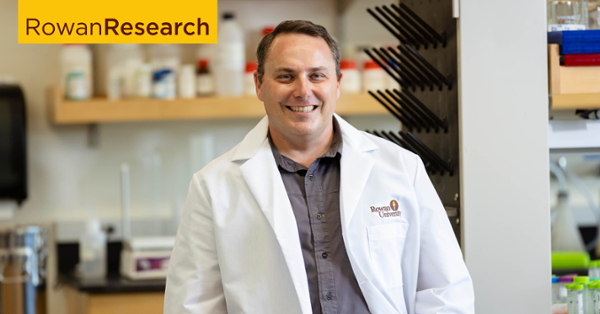Understanding the origins of cell programming
Understanding the origins of cell programming

How are the cells of an embryo programmed to develop in certain ways—for example, into cells that make up specific organs—in the early stages of development? Can one individual’s life experiences affect the next generation? These are among the questions Benjamin Carone, Ph.D., assistant professor in the Department of Biological & Biomedical Sciences at Rowan University’s College of Science and Mathematics, is investigating.
“My area of focus is understanding how cells are programmed for developmental processes early in embryo development,” said Carone.
Benjamin Carone, Ph.D.
Molecular biologist
Areas of expertise:Epigenetics, molecular genetics, antimicrobial resistance
More informationAll of a person’s cells, from liver cells to eye cells, share the same DNA. Through stem cell development, scientists can create an entire organism using only one type of cell. To program the cells to develop into the intended parts—liver, eyeball and so on—“you need to turn genes on and off inside the cells,” Carone explained.
Carone conducts his investigations in turning genes on and off through genetic modification of stem cells in his lab and research involving rodent models at Cooper Medical School of Rowan University.
Part of the challenge is making sure that these genetically modified cells maintain their programming throughout the individual’s lifetime and from one generation to the next. Just as one’s liver cells won’t spontaneously change to eye cells, genetically modified cells shouldn’t change their programming.
That aspect of maintaining cell programming across generations, known as transgenerational inheritance, is a longstanding research interest of Carone’s. Throughout years of research in epigenetics—the non-genetic mechanisms arising out of life experiences that play a role in inherited conditions—Carone’s work has shed light on how transgenerational inheritance can play out in rodents and humans.
Carone’s current research in cell programming and epigenetics is funded by an Academic Research Enhancement Awards (AREA) (R15) grant from the National Institutes of Health.
Watch this video to learn more about Rowan’s bioinformatics program.
Rowan University researchers are passionate about what they do. Find more at Meet Our Researchers.